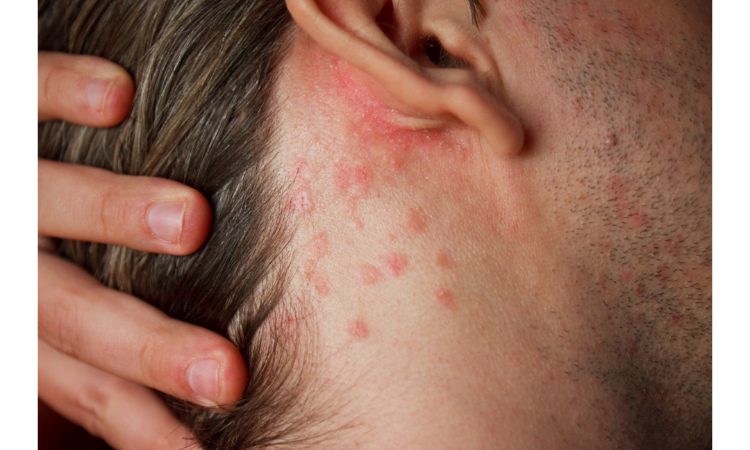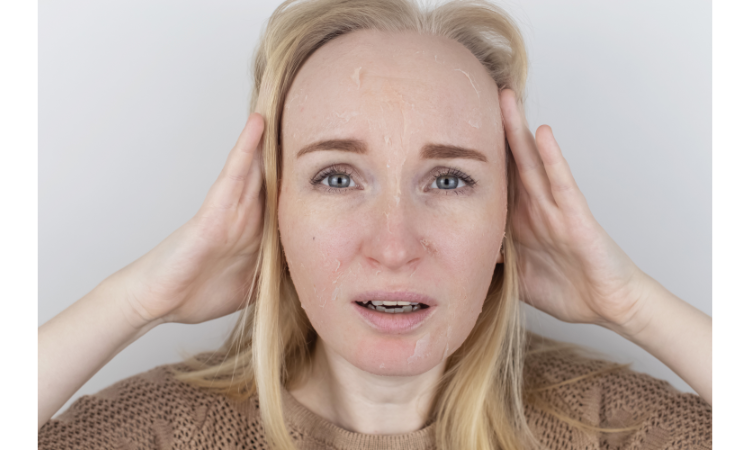Stress is an inevitable part of life, and while it’s widely known to impact our mental health, few are aware of the toll it takes on our skin’s health and appearance. In this article-The Unseen Effects How Stress Takes a Toll on Your Skin’s Health and Appearance, we will delve into the unseen effects of stress on the skin, exploring what stress does to your body, what stress does to your face, and why stress causes skin problems. By understanding the connection between stress and skin health, you’ll be better equipped to protect and care for your skin in times of high stress.
What Stress Does to Your Body

Stress affects the body in various ways, impacting both our physical and mental well-being. Here’s a quick overview of what stress does to your body physically:
- Increases heart rate and blood pressure
- Triggers the release of stress hormones like cortisol
- Weakens the immune system
- Disrupts digestive functions
- Causes muscle tension and pain
- Impairs cognitive function and memory
- Affects sleep patterns
These physical effects of stress can manifest differently in men and women, with what stress does to the female body often including additional symptoms such as hormonal imbalances, menstrual irregularities, and increased risk of certain chronic conditions.
The Connection Between Stress and Skin Health

Now that we understand what stress does to your body and brain, let’s explore how stress affects your skin. Here are some of the ways stress can impact your skin’s health and appearance:
- Hormonal Imbalances: The release of stress hormones like cortisol can cause hormonal imbalances, leading to increased oil production, acne breakouts, and inflammation.
- Weakened Immune System: Stress weakens the immune system, making your skin more susceptible to infections and less able to heal itself.
- Sleep Disruption: Lack of quality sleep can result in dull, tired-looking skin, dark circles under the eyes, and a decrease in collagen production, which contributes to premature aging.
- Dehydration: Stress can affect the skin’s ability to retain moisture, leading to dryness, flakiness, and an increased risk of fine lines and wrinkles.
- Skin Sensitivity: Stress can cause the skin to become more sensitive and reactive, leading to redness, itching, and rashes.
What Does Stressed Skin Look Like?

Identifying the signs of stressed skin is crucial for taking the necessary steps to address the issue. Here’s what stressed skin looks like:
- Acne breakouts or worsening of pre-existing acne
- Dry, flaky, or itchy skin
- Redness, rashes, or hives
- Fine lines and wrinkles
- Dull or tired-looking complexion
What Chronic Stress Does to Your Body and Skin?
While occasional stress is a normal part of life, chronic stress can have lasting and severe effects on your overall health, including your skin. What chronic stress does to your body includes long-term damage to the cardiovascular, immune, and digestive systems, as well as an increased risk of mental health issues like depression and anxiety.
When it comes to what chronic stress does to your skin, prolonged exposure to stress hormones can lead to ongoing inflammation, worsening of pre-existing skin conditions, and an accelerated aging process.
Can Stress Damage Your Skin? And Can Your Skin React to Stress?
The answer to both questions is a resounding yes. As we’ve seen, stress can damage your skin by causing hormonal imbalances, weakening the immune system, disrupting sleep, and dehydrating the skin. Additionally, your skin can react to stress through increased sensitivity, redness, itching, and rashes. Recognizing these signs and taking steps to manage stress can help protect your skin from damage and maintain a healthy, glowing complexion.
Can Anxiety and Stress Cause Skin Problems?

Anxiety often goes hand-in-hand with stress, and together, they can exacerbate existing skin issues or even trigger new ones. Here’s a brief overview of what stress and anxiety do to your body:
- Exacerbate pre-existing skin conditions like eczema, psoriasis, and rosacea
- Cause or worsen acne breakouts due to increased oil production and inflammation
- Trigger stress-related skin disorders such as hives or stress-induced dermatitis
- Increase skin sensitivity, leading to redness, itching, and rashes
Understanding the link between anxiety, stress, and skin problems can help you adopt better stress management strategies to safeguard your skin’s health and appearance.
Can Stress Cause Hair Problems?

Yes, stress can indeed cause hair problems. High levels of stress can have a significant impact on your hair’s health and growth cycle, leading to a range of issues such as hair loss, thinning, breakage, and slow growth. Here’s an overview of the relationship between stress and hair problems:
- Telogen Effluvium: This condition occurs when stress pushes a large number of hair follicles into the resting (telogen) phase of the growth cycle. Consequently, the affected hairs fall out several months later, leading to noticeable hair loss and thinning.
- Alopecia Areata: Stress can trigger or exacerbate this autoimmune disorder, wherein the immune system attacks hair follicles, causing hair loss in small, round patches. In some cases, hair loss can become more extensive, affecting the entire scalp or even the entire body.
- Trichotillomania: This is an impulse control disorder that causes individuals to compulsively pull out their hair due to stress, anxiety, or other emotional triggers. The hair pulling can result in noticeable hair loss and can lead to further stress and anxiety.
- Hair Breakage: Chronic stress can weaken the hair structure, making it more prone to breakage and split ends. Additionally, stress can lead to poor dietary habits and inadequate nutrient intake, which can also contribute to weakened hair.
- Slow Hair Growth: High-stress levels can disrupt the normal hair growth cycle, resulting in slower growth or even a temporary halt in hair growth altogether.
To manage stress-induced hair problems, it’s essential to adopt stress-reduction techniques and maintain a healthy lifestyle. Incorporating relaxation practices like meditation, yoga, or deep breathing exercises, prioritizing sleep, maintaining a balanced diet, and seeking professional help when needed can all contribute to better stress management and improved hair health.
Tips for Managing Stress and Protecting Your Skin

Knowing what stress does to your body chemically and the effects it has on your skin is crucial, but it’s also essential to have a plan for managing stress and protecting your skin. Here are some helpful tips:
- Practice relaxation techniques: Incorporate mindfulness meditation, deep breathing exercises, or yoga into your daily routine to help reduce stress levels.
- Get regular exercise: Physical activity can help release endorphins and alleviate stress while promoting better overall health.
- Prioritize sleep: Ensure you’re getting 7-9 hours of quality sleep each night to give your skin the chance to repair and rejuvenate itself.
- Maintain a healthy diet: Eating a balanced diet rich in fruits, vegetables, and whole grains can help reduce inflammation and support skin health.
- Stay hydrated: Drinking plenty of water throughout the day can help maintain your skin’s moisture levels and combat the dehydrating effects of stress.
- Develop a consistent skincare routine: Following a skincare routine tailored to your skin type can help address stress-related skin issues and maintain a healthy complexion.
- Seek professional help: If stress becomes overwhelming or unmanageable, consider talking to a mental health professional who can provide guidance and support.
Conclusion

The connection between stress and skin health is undeniable. By understanding what stress does to your body physically, what stress does to your face, and how stress affects your skin, you can take proactive steps to manage stress and maintain a healthy, vibrant complexion. Implementing stress management techniques, prioritizing self-care, and adopting a consistent skincare routine can help protect your skin from the unseen effects of stress and keep it looking its best.
